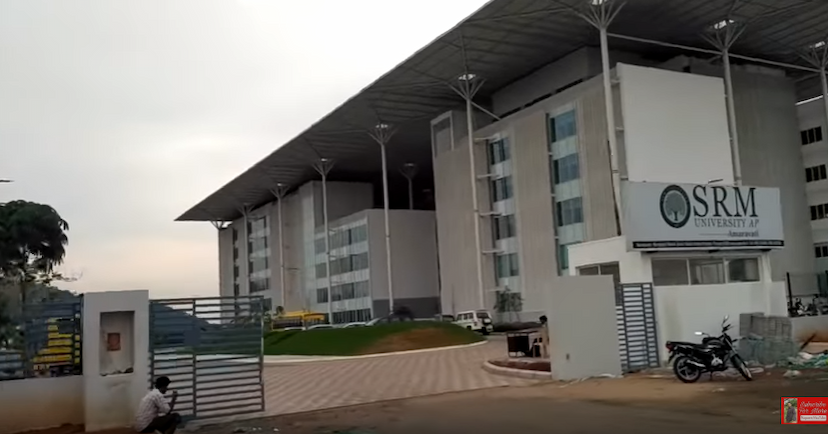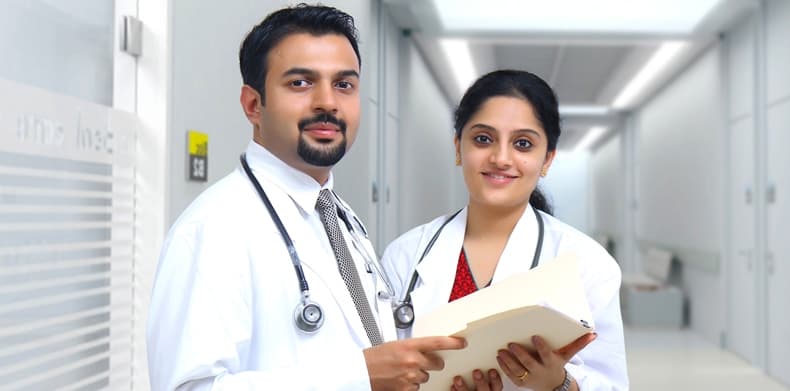SRM University AP 2020: Great conference focuses brillinatly on AI

SRM University AP became the talk of the town when its department of Electronics and Communication Engineering organised an insightful workshop on Artificial Intelligence (AI) for healthcare in collaboration with IEEE-SRM AP Student Branch on 25 July.
Professor D. Narayana Rao, Pro-Vice-Chancellor, SRM University AP inaugurated the session.


Professor Narayana Rao asserted that healthcare in India faces significant challenges on quality, accessibility and affordability for a large section of the Indian population.
The shortage of doctors, lack of infrastructures, different mindset about the urban and rural population of the country and low government spending on the healthcare are very much motivating India towards innovative and sustainable and affordable technology to improve the quality of life, said Pro-vice chancellor of SRM University AP.
AI is being extensively used in six healthcare segments such as hospital administration, pharmaceuticals, diagnostics, medical equipment and supplies, medical insurance and telemedicine, he said.

Moreover, The Government of India also shows its keen inclination as in the past week, the Prime Minister Narendra Modi had a discussion with the CEO of IBM regarding the development of AI-enabled medical instruments for healthcare in the country.
Needless to say, there are a plethora of opportunities for new engineers and doctors, said Prof Rao at the workshop held on the premises of SRM University AP.
Dr. Muralikrishna speaking at the event organised on the premises of SRM University AP said Artificial intelligence has a huge potential to become a transformational force in healthcare.

Appy Now for – NSHM Knowledge Campus, Kolkata West Bengal
It allows humans to gain unprecedented insights into diagnosis, care process, treatment variability and patient outcomes.
Dr Voonna further informed that there is a huge scope for development in the segments such as brain-computer interface, next-generation radiology tools, creation of precise analytics for pathology images, expanding access to treat underserved regions, clinical decision support etc. to name a few.


They have started a National Research Strategy for Artificial Intelligence recently.
National Digital Health Authority has been formed as a regulatory body which is going to make the regulation in the Artificial Intelligence in start-ups and business and commercialisation of the products, said Dr Voonna.
Dr Rajiv Janardhanan speaking at the seminar at SRM University AP that the healthcare disparity continued because the investments of the government in the years after independence is less than two percent.
COVID-19 has turned out to be a blessing for health care as it made people especially policymakers to realise that the healthcare infrastructure needs to be improved drastically.
The AI-enabled intelligent support system is required because of budget constraints, rising costs of advanced medical treatments, increased complexity and cost of delivering healthcare, as well as increased expectations and demand for quality patient-centred healthcare.
India comprises of a healthcare ecosystem where 80% of the healthcare is expensive and 70% of the population is living in rural areas with marginalised and inaccessible healthcare.
This makes the rationale to develop tools which are community empowering, said Dr. Janardhanan.
AI-enabled tagging of data can convert precision medicine to a community-centric new system which is called precision public health.
This conversion has to be technology-enabled with support from the engineering fraternity to make it affordable and accessible, he said.
The second half of the session at SRM University AP, there was a panel discussion on impact of COVID-19 on health immunity system.
Padma Shree Awardee Prof Kaul explained in detail how COVID-19 disease affects the human body and the process of vaccination.

Dr Taneja and Dr Ramakanth expressed their views on COVID situation based on their daily experience at the
hospitals during the seminar at SRM University AP.
The panel agreed that the adoption of artificial intelligence (AI) in the healthcare system enables healthcare services, delivered at a lower cost with increased efficiency and emphasis on the diagnostics.
AI should be encouraged to be used in machines to predict, comprehend, learn and act. It has the ability to play the role of game-changer in the areas of wellness, early detection, diagnosis, decision making, treatment, end of life, research and training.
However, some concerns related to the safety, data quality, accountability, transparency, legal aspects etc. still persists.
S Vishnu Sharmaa now works with collegechalo.com in the news team. His work involves writing articles related to the education sector in India with a keen focus on higher education issues. Journalism has always been a passion for him. He has more than 10 years of enriching experience with various media organizations like Eenadu, Webdunia, News Today, Infodea. He also has a strong interest in writing about defence and railway related issues.









